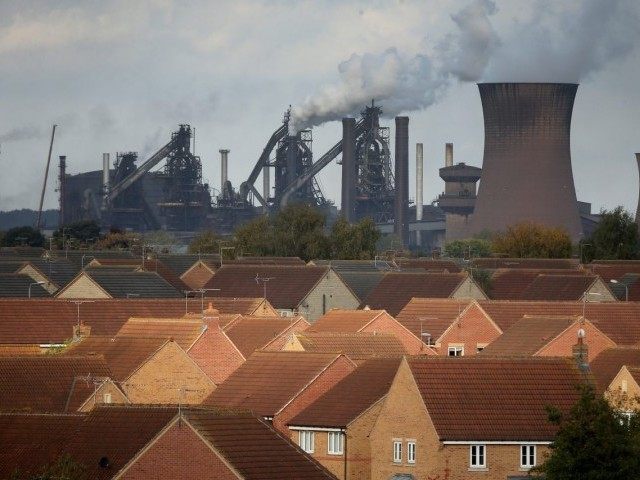A Conservative led council has refused to give a tax break to Tata Steel’s Scunthorpe plant, admitting that granting a discount on the firm’s £15.2 million business rates bill would be illegal under EU law. Tata Steel yesterday confirmed 900 job losses at the plant, in addition to a further 300 across three further locations.
Warning bells have been ringing over the steel industry for the last few months as high energy prices and a flood of cheap Chinese steel on the market combined to make British steel ever less profitable. The warnings prompted the Labour Party group on North Lincolnshire Council to grant Tata’s Scunthorpe plant a reprieve on business rates in order to preserve jobs, but the Council has insisted that it can’t.
In the face of fresh pleas, council leader Liz Redfern has reiterated that the council’s hands are tied, the Scunthorpe Telegraph has reported.
“In terms of business rates, the Council has been looking very carefully at this, however the barrier we face is that of EU state aid laws which prevent countries from unfairly subsidising one industry over another,” she said. “The legal advice we received is clear in that the Council would be acting illegally if it simply stopped collecting business rates from Tata.”
Ms Redfern said that the council was talking to government ministers to enquire whether any legal mechanisms exist at the national or EU levels which would allow the council to step in and help. But she added: “It is a fact that EU law and international trade agreements do not allow Governments to provide subsidies to their industries.”
The steel industry in fact falls foul of EU law on a number of aspects, as it is also affected by the EU’s environmental regulations which push up energy prices. Steel is a highly energy intensive industry.
Councillor Redfern acknowledged the role that energy has played in the downfall of the industry, saying: “The Government is currently waiting for EU approval on a compensation package on energy, this would help Tata in Scunthorpe a great deal. The Chancellor announced this back in 2014 and we are still waiting for EU approval.”
She concluded: “I have been reassured that everything that can be legally done is being looked at.”
With Britain’s referendum on membership of the EU due in 2017, the impact of EU regulations on the nation’s industries is set to become a matter of heated debate.
Jane Collins MEP, UKIP’s employment spokesman told Breitbart London: “People think the EU is all immigration and bendy bananas, but there’s virtually no part of our lives it doesn’t stick its nose into.”
Speaking to BBC Humberside yesterday, she described the impact on British steel workers and their families as “devastating,” arguing that the best course of action now is simply to ignore the EU rules.
“There has been a lot of talking but little action by MPs, businesses and unions – the latter of course who happily accepted green taxes without thinking of the consequences to the very workers they are supposed to represent,” she said.
“EU state aid rules prevent us taking over steel mills and running them as a going concern. It stops us providing short term funding for wages or improvements in manufacturing which could improve production and lower costs. In short, it stops us putting even a temporary halt on job losses while other options are researched.
“In 2017 we are going to have a referendum on our EU membership. That’s the year after next. In legal terms, that’s no time at all.
“It means that theoretically we could chose to ignore EU state aid rules, knowing that by the time any fines or court action comes our way, we could have chosen to wave goodbye to Brussels and their overbearing, job costing rules and regulations.”

COMMENTS
Please let us know if you're having issues with commenting.